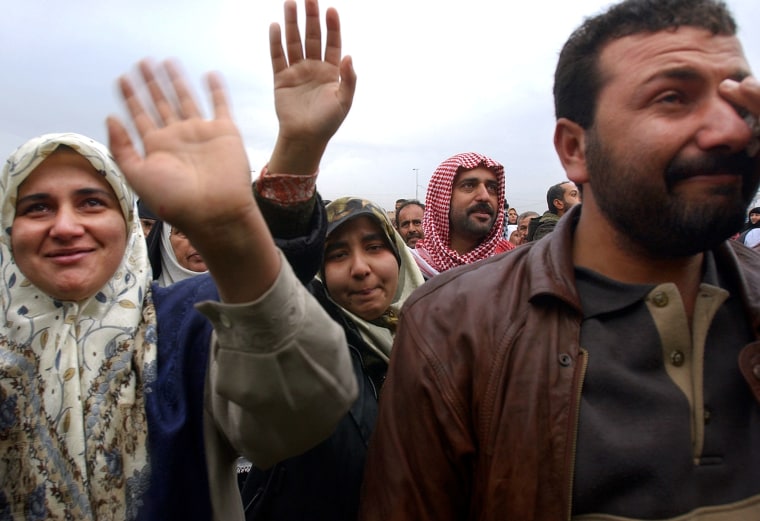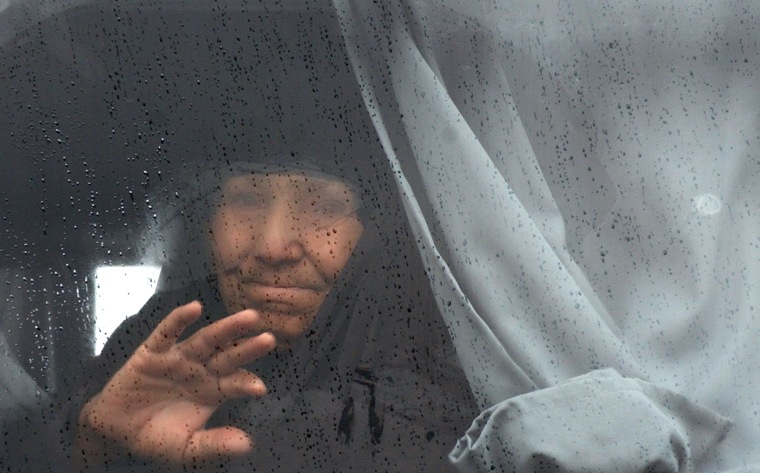Hundreds of Iraqis left Thursday for the annual hajj pilgrimage, the first of what will be the largest Iraqi contingent to travel to Mecca in 35 years, free from Saddam Hussein’s restrictions.
Officials said some 30,000 Iraqi pilgrims will go to Saudi Arabia this year for the hajj compared to about 10,000 to 15,000 in previous years.
Saudi Arabia sets pilgrim quotas for each Islamic country, and although Iraq was allowed 25,000, Saddam’s government permitted only those above 60 years of age to prevent defections and contacts with dissidents.
“These were security orders,” said Adnan al-Assadi, an assistant to the head of the National Hajj Committee.
Also, economic hardships suffered by Iraqis under 13 years of U.N. sanctions limited the number of pilgrims. Iraq’s quota this year was raised by 5,000 to 30,000.
For one, tears of joy
Lamia Shehab, a woman in her 50s, cried as she bid her family farewell before boarding the bus, saying she never dreamed during Saddam’s regime that she would be able to go on hajj.
“This is God’s wish. Thank God he had it in for us. Before, people our age would not be allowed,” she said.
During Saddam’s era, even the elderly hajj pilgrims were accompanied by secret agents, al-Assadi said.
On Thursday, pilgrims from all over the country gathered at the Al-Shaab or The People’s Stadium before embarking on a seven-hour bus journey to Kuwait, where they would board flights. Twenty police cars escorted the buses.
Waving white flags, a symbol of the hajj, the pilgrims exchanged kisses with relatives and friends who had come to send them off and sacrificed animals in a gesture of gratitude.

Adnan said 3,000 Iraqis were scheduled to go in the first batch but he did not have an exact figure for how many did leave.
Every Muslim is required to perform the hajj at least once in his or her lifetime, if possible.
The pilgrims were initially supposed to fly to Saudi Arabia from the Baghdad International Airport, which is under the U.S. military’s control. But U.S. authorities withdrew permission for the flights, citing security concern.
“Despite the difficult and unstable circumstances, Iraqis from all shades, sectors and groups are heading to the House of God with pious hearts,” said Hussein al-Shami, a Shiite cleric.
The government is subsidizing more than half the cost of the trip, which can last up to three weeks. Still, each pilgrim has to pay $700 for accommodation, transportation and food.
